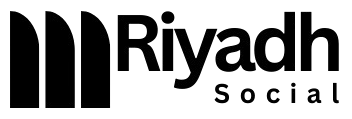Protein Diet: Weighing the Pros and Cons

The Protein Diet: Benefits and Harms
The Protein Diet Has Nutritional Conditions
According to Dr. Basma, the protein diet requires eating a variety of foods rich in protein, especially "animal protein, vegetable protein, whole grains, protein-rich vegetables, and legumes." Therefore, we will find that its various sources may benefit the body in meeting its needs, as it contains other compounds that are healthy for the body during weight loss.
A Protein Diet is Beneficial to Health for These Benefits
Dr. Basma explained that the protein diet is rich in a variety of foods that contribute to meeting the body’s needs, and although it contains a high percentage of proteins, it is useful for losing weight and building muscle mass at the same time, and most importantly, it achieves several benefits for women, the most important of which are:
- It contains various vitamins and minerals, in addition to proteins, especially in healthy foods: spinach, broccoli, Brussels sprouts, asparagus, fat-free dairy products, oats, quinoa, red meat, fish, poultry, eggs, beans, lentils, and chickpeas.
- It supplies red blood cells with oxygen to maintain healthy skin and skin during weight loss.
- It contributes to building muscles and bones during weight loss.
- It regulates the body’s hormones in general.
- It stimulates the body to produce enzymes that are beneficial for heart and brain health during weight loss.
- It provides 22 amino acids, including 9 that are beneficial in the body’s diet in general.
- It burns fat and makes you feel full for long periods, especially if it is followed as part of a regular physical program to benefit from the benefits of the protein diet.
The Protein Diet is Not Without Harm
Dr. Basma confirmed that following the routine diet randomly without developing a precise nutritional plan with the specialist doctor, and adhering to the instructions without wasting their details during the implementation of the protein diet, may lead to the following harms:
- The protein diet causes the body to suffer from chronic constipation, with a lack of fiber and many nutrients that facilitate the functioning of the digestive system.
- It contributes to the body developing gout in the long term.
- It leads to disruption of kidney function and the formation of stones that affect general health.
- It helps to constantly feel depressed, because the body does not get the natural sugars it needs during weight loss.
- It increases the level of cholesterol in the blood, thus leading to heart disease in the long term.
A Healthy Protein Diet Follows These Tips
According to Dr. Basma, before following any type of protein diet, and to ensure its success without subsequent harm; Every woman or girl should follow the following tips:
- Calculate your body’s protein needs; It is the most important step that you must pay attention to in order to avoid any side effects of eating large amounts of protein. Taking into account consulting a nutritionist to calculate it according to the nature of the body and its health condition, and nothing else.
- Eat at least 25-30 grams of protein at each meal; Eating at least 25 grams in each meal may help lose weight and maintain muscle mass.
- Combine animal and plant proteins to increase the diversity of the diet and make it more beneficial.
- Choose high-quality protein sources; In particular, focus on fresh fish, eggs, dairy products and other high-quality sources of protein, rather than processed meats such as bacon, for example.
- Eat whole grains, as some of them provide the body with carbohydrates at the same time, such as quinoa and chia.
- Eat a balanced meal of vegetables and fruits, along with protein at every meal, to make it more balanced.
- Abstain from drinking soft drinks completely while following the protein diet according to the doctor’s instructions and not on your own.
- Make sure to prepare protein diet meals at home and not buy them from abroad.
- Avoid eating roasted and salted nuts while following the protein diet to burn fat and lose weight.
- Stick to the protein diet plan tailored to you according to your body type and health condition, and most importantly, eat the recommended amount of protein without excessive amounts at all.
- Pregnant women, breastfeeding mothers, and diabetic and high blood pressure patients in particular are prohibited from following a protein diet.
- Regularly exercise and drink large amounts of water while following the protein diet to lose weight.
Conclusion
In conclusion, the protein diet is a popular diet that can be beneficial for weight loss and building muscle mass, but it is essential to follow a precise nutritional plan and consult a specialist doctor to avoid any harm. By following the tips mentioned above, you can ensure a healthy and successful protein diet that meets your body’s needs and promotes overall health and well-being.
FAQs
Q: Is the protein diet suitable for everyone?
A: No, the protein diet is not suitable for everyone, especially pregnant women, breastfeeding mothers, and diabetic and high blood pressure patients.
Q: How much protein should I eat daily?
A: It is recommended to eat at least 25-30 grams of protein at each meal, and to consult a nutritionist to calculate your body’s protein needs.
Q: Can I follow the protein diet if I have a medical condition?
A: It is recommended to consult a specialist doctor before following the protein diet, especially if you have a medical condition.
Q: Can I eat processed meats while following the protein diet?
A: No, it is recommended to choose high-quality protein sources, such as fresh fish, eggs, and dairy products, rather than processed meats like bacon.

